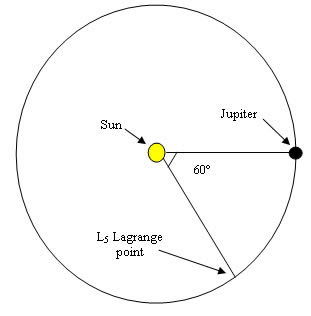I saw this one coming:
"'Our trouble today is that we could leave individually, but we've got so big an investment in Odyyseus, emotional more than financial, it'd hard to see how we could -'
"And the cigarette dropped from his fingers, and he stared into a vision for a minute that became very silent in the room, until he breathed, 'Or could we?'"
-Poul Anderson, "Ramble With A Gamblin' Man" IN Anderson, Tales Of The Flying Mountains (New York, 1984), pp. 129-163 AT pp. 154-155.
This is yet another moment of realization, of course!
Harker, head of the commission from Washington, says that both Donald Bell of Odyyseus and he himself are guilty of being "'...glutted while others are poor.'" (p. 143) No, they are not. I am not guilty if my salary is higher than another man's because my work is more skilled than his. I am guilty if my large income derives directly from keeping others in poverty. Don't spread the guilt around. Direct it to where it applies.
Harker seems to contradict himself. Having spoken of poverty, he acknowledges that no one in North America is starving but claims that there are riots because "'...an ever-mounting standard of living...not only stops rising, it takes a sharp downturn...'" (ibid.)
I think that hardships greater than a mere downturn in an already high standard of living are necessary to explain riots!

5 comments:
Not really. "Poverty" is always a relative concept, once you're above physical-starvation levels. Most Americans were fairly well-fed 100 years ago, but had a standard of living far lower than their grandchildren; but they didn't feel poor.
However, if you made those great-grandchildren live the way people in 1917 did -- no refrigerators for most, no electronic media, usually no electric light, coal heat, long hours of hard physical labor -- they'd be quite likely to riot.
Dear Mr. Stirling and Paul,
Mr. Stirling: And we see something like that in the first of your Nantucket trilogy books. The Nantucketers had a tough time adapting to the sudden drop in their standard of living. If there was no mass rioting it was because everybody was in the same boat and they had no choice but to accept the drastically lower standard of living.
Paul, I agree with your comments criticizing Harker's view that it was somehow wrong if some persons like Donald Bell (and Harker himself!) were more prosperous than others.
Sean
To both and all,
Agreed that poverty is relative. Loss of electricity would be a deprivation for us but not for our ancestors who had never had it.
Paul.
"Loss of electricity would be a deprivation for us but not for our ancestors who had never had it."
I think it would be a deprivation not just because we are accustomed to having electricity, but also because electricity is used eg: to preserve food, so we would just have less food etc. without electricity. Having several times more people to feed makes that more of a problem.
Kaor, Jim!
Maybe not so much LESS food for the Nantucketers, after a few years, and some luck and grueling hard work. But a lower quality of food, at least for those unwilling or unable to pay higher prices for the better stuff. It would take time and bit by bit reconstruction of pre-Change technology before electricity again became common.
Ad astra! Sean
Post a Comment